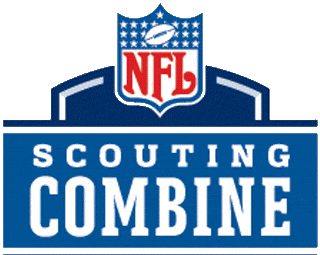The following op-ed was submitted by sports agent Jeffrey Dobin, Esq. Mr. Dobin is co-founder of Athlete Advocates.
 As the football season ends, the NFL Scouting Combine symbolizes a new beginning for potential NFL rookies. Last year, discussions at the NFL’s Scouting Combine revolved around a common theme: the lockout and CBA negotiations. Now that this issue has been resolved, things should return to business as usual. Although agents are required to attend Friday’s agent meeting to maintain NFLPA certification (or attend a seminar in San Diego this spring), this is hardly the reason we attend the Scouting Combine.
As the football season ends, the NFL Scouting Combine symbolizes a new beginning for potential NFL rookies. Last year, discussions at the NFL’s Scouting Combine revolved around a common theme: the lockout and CBA negotiations. Now that this issue has been resolved, things should return to business as usual. Although agents are required to attend Friday’s agent meeting to maintain NFLPA certification (or attend a seminar in San Diego this spring), this is hardly the reason we attend the Scouting Combine.
For a one week period beginning Wednesday, February 22, team executives, scouts, coaches, marketing representatives, sports apparel companies, agents and potential draft candidates will convene in an area spanning a one mile radius from Lucas Oil Stadium – the Combine epicenter and home of the Indianapolis Colts. With a plethora of NFL insiders squeezed into such a small area, it is difficult to avoid familiar faces. While walking from the hotel to lunch I am sure to bump into a scout or coach I know, however, each person has his/her own agenda and is there for their his/her specific purpose.
Coaches and scouts attend for one main reason: to evaluate the talent of over 300 potential draft candidates who were invited.
Players arrive in one of four separate groups, which all follow the same four-day schedule. One of our clients arrives on Wednesday and will undergo X-rays, orientation and a string of interviews. On Thursday he will have his medical evaluation; they will take his official measurements, conduct more interviews, and evaluate his intelligence and psychological well-being through Wonderlic testing. Friday brings more psychological testing, interviews and an important meeting with the NFL Players Association. Saturday is the first day of workouts, which have come to be highlighted and promoted by the NFL Network and ESPN. This is also the final day for “Group 1” participants. Players will be timed in drills including the famous 40 yard dash and various agility drills. The bench press test, which requires a player to press 225 pounds for as many reps as possible, will be used to measure strength and stamina. Players will also participate in football drills to evaluate their skills specific to their position.
This period of evaluation will lead to some players’ draft stock plummeting due to poor workouts or failed medical examinations. Others, however, will see their draft stock skyrocket due to strong performances. Some players will therefore be drafted much higher than originally projected, while other players will slip. Oftentimes, team personnel put too much weight on Combine performance and not enough on actual success at the collegiate level. If evaluating talent was an actual science, we would not see undrafted free agents become Pro Bowlers, or first round draft picks become busts. Evaluating talent is an art and the most successful evaluators use as many tools as possible to rank and evaluate draft candidates.
Agents attend the Scouting Combine to promote their players. Face-to-face interaction is usually more successful than a phone call or email. For an agent, there is no better place to be three weeks following the Super Bowl than in Indianapolis at the Combine. I have already scheduled dozens of meetings with scouts, General Managers and everyone in between. Some meetings will be formal and private in our hotel rooms. Others will be more casual in a hotel lobby or over dinner at one of the popular restaurants and pubs blocks from the stadium. During these meetings, we will not only promote our top rookie talent, but we will also encourage teams to consider players we anticipate to be undrafted free agents. These rookies will fit into certain schemes better than others, and it is our job as agents to ensure our undrafted free agents sign with teams that will help them grow and develop their talent. Lastly, we will discuss our veteran free agents in an attempt to keep them with their current teams, or find them each a new home where they can prosper.
Besides being stopped by a handful of enthusiastic football fans, I am likely to speak with former NFL and college coaches or scouts who are looking for work. They attend Combine for a similar reason: to network and find new employment. Despite the unlikelihood of being hired this week, attending Combine keeps unemployed coaches and scouts in the loop and on the minds of important NFL decision makers, and increases their chances of finding their next employer sooner rather than later.
Although football seemed to end just a few weeks ago with a Giants win over the Patriots, Indianapolis will be buzzing again. Teams will be searching for talent, players will be fighting to prove themselves and agents will be the liaison between the two. Some people think football has ended for the year; I think it’s just beginning.
